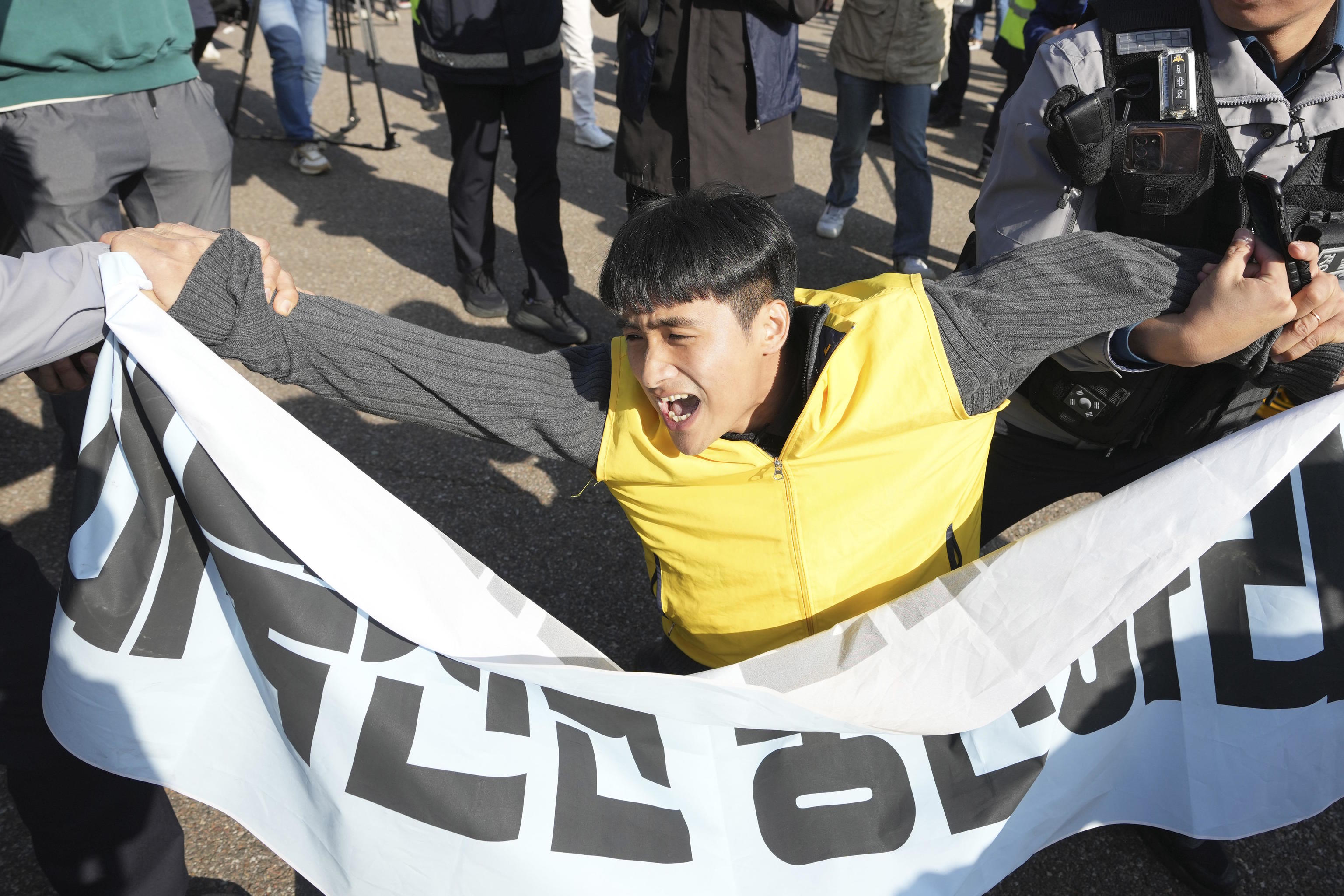While the international focus is on the deployment of North Korean troops in Russia, the Kim Jong-un regime continues to provoke tensions in the Asia-Pacific region after launching an intercontinental ballistic missile (ICBM) on Thursday that landed in the Sea of Japan.
From Tokyo and Seoul, which were monitoring the launch early on, it was detailed that the rocket flew for an hour and 27 minutes and traveled a distance of about 1,000 kilometers, making it the projectile from North Korea that has spent the longest time in the air.
This new ballistic test by Pyongyang came hours after, from Washington, the U.S. Secretary of Defense, Lloyd Austin, and the South Korean Minister of Defense, Kim Yong-hyun, participated in a joint appearance to provide details on the 11,000 North Korean soldiers supporting Russia in its war against Ukraine.
Austin stated that North Korean troops dressed in Russian uniforms and armed were heading towards the border region of Kursk, where Putin's army has been fighting to repel a Ukrainian incursion. "It is highly likely that Russia will use these troops in combat. This deployment has the potential to expand or prolong the conflict in Ukraine," Austin emphasized.
In Seoul, the presidential office pointed out that more than 3,000 of these North Korean soldiers are already deployed to combat zones in western Russia, while Ukrainian officials have stated that North Korean troops are stationed 50 kilometers from their border.
Information that was denied on Wednesday by Vassily Nebenzia, Russian Ambassador to the United Nations. "All these statements about North Korean soldiers on our front should not surprise anyone because they are all blatant lies," he stated. Currently, the North Korean Minister of Foreign Affairs, Choe Son Hui, is visiting Russia for the second time in the last six weeks.
"The North Korean contingent on Russian territory has opened a new chapter in this war," stated Ukrainian President, Volodymyr Zelensky, the first to warn last week that North Korean soldiers were heading towards Kursk. "I met with many different leaders and told them that this is very dangerous and that we need a strong reaction to it. So far, we have heard some reactions, but they are not strong enough," Zelensky reprimanded.
Next week, to discuss the deployment of North Korean troops to Russia, the EU's foreign policy chief, Josep Borrell, will visit South Korea, a country considering directly supplying weapons to Ukraine for the first time in response to the close military alliance between Kim Jong-un and Vladimir Putin. A legislator from the ruling party stated on Thursday that the government is considering sending surface-to-air missiles to Kiev.
In Seoul, there is also concern about the recent movements noticed in the neighboring country regarding a new nuclear test. The South Korean intelligence agency warned lawmakers yesterday that Pyongyang may be completing preparations for its seventh nuclear test, the first since 2017. It was also reported that Kim Jong-un had asked Moscow for advanced technology for its nuclear and ballistic missile programs in exchange for sending more troops to fight against the Ukrainian army.
Following North Korea's latest show of force with the ICBM launch, which violates UN Security Council resolutions, North Korean media quoted statements from the supreme leader stating that the test is a demonstration of the country's "counterattack will" against its rivals (Seoul, Washington, and Tokyo), accusing them of escalating tensions in the region and forming an alliance that threatens its authoritarian regime.
The response from South Korea and the United States has been to affirm that they will strengthen their security alliance with new "combined exercises involving the deployment of U.S. strategic assets."
